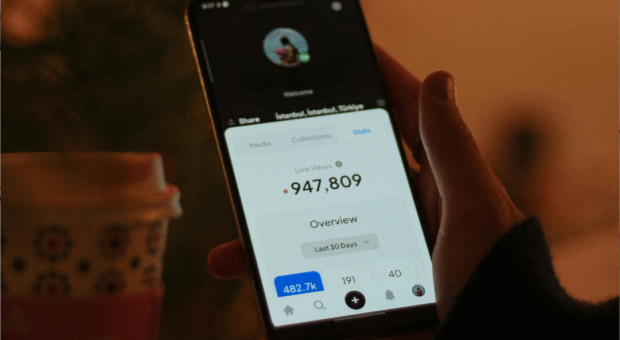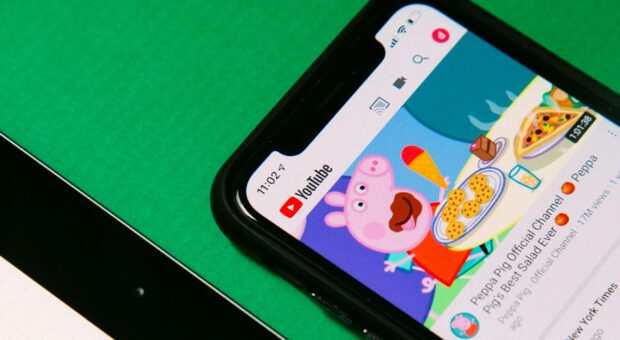
Categories:
Yesterday Facebook announced some big news – they’re dramatically reducing “public” (i.e., business, brand. and media) page content in the newsfeed.
*Queue the collective gasp and subsequent freak-out from businesses and social media managers worldwide.*
But before you delete your account and start sending the Zuck all kinds of hate mail, let’s take a moment to understand exactly what is and what isn’t changing. More importantly, let’s try to understand what this change to the Facebook newsfeed means for brands moving forward.
This isn’t the first time Facebook has done this.
The somewhat dramatic reaction to this most recent announcement might lead you to believe that this is a revolutionary change, but the reality is that organic reach for businesses and brands on Facebook has been declining for years. Most notably in January of 2015, Facebook announced they would start deprioritizing page posts that read more like ads than content. From there, a continuous stream of newsfeed algorithm updates have been released that continue to deprioritize page posts in favor of content from friends and family, as well as more engaging mediums such as photos and videos.
This is not actually that big of a change.
There’s a lot of misinformation floating around out there about what this change actually means – most of it (ironically) fueled by knee jerk assumptions and misleading headlines on Facebook. The reality is that this most recent change will primarily affect brands and media organizations that rely on organic reach to distribute their content on Facebook. Average organic reach on Facebook currently hovers somewhere around 1-2%, and this new change will likely bring that number down a little bit closer to zero – something most social media managers have known was coming eventually anyway.
Advertisers won’t be affected (at least not yet).
If you currently pay to promote your posts on Facebook (if you’re an Ethos|VONT client, you’ve likely been doing this already for years) your post reach shouldn’t be affected, at least not yet. In fact, you may even see better reach and engagement now that unpaid content is being filtered from users’ newsfeeds. It remains to be seen whether this latest move will increase the cost of advertising on Facebook, as even more brands resort to promoted content, thus driving up competition for newsfeed space. However, it’s unlikely that a major increase in cost would happen immediately.
You (and your target audience) will still see page posts in the newsfeed.
Many of the “breaking news” headlines covering this most recent change make it seem as if public content will be disappearing from the newsfeed completely. These rumors have been fueled by older articles from last October that focus on the newsfeed tests Facebook was running in Serbia, Sri Lanka, Slovakia, Cambodia, Guatemala, and Bolivia. Those tests featured a dual newsfeed system, one for friends and family content, and another “Explore” tab for public content. It’s worth noting that even in those tests (which Facebook explicitly stated they had no intentions of rolling out globally), promoted page content was still featured in the friends as family newsfeed. Facebook’s stated intention for these tests was to make it easier for people to see the content they want to see on the platform (i.e., pictures of kittens and babies), as well as to prevent the spread of “fake news” (i.e. less than reputable publishers that rely on clickbait headlines to earn views). Given these intentions, and the fact that Facebook’s entire revenue stream is dependent on ad dollars from businesses promoting their content – it’s unlikely that Facebook would ever entirely remove public page content (as long as it is promoted) from the main user newsfeed.
So, what exactly IS changing?
What’s changing is that Facebook currently shows you content in your newsfeed that its algorithm thinks you’re going to like. So. instead of a chronological feed of things your friends have posted, or content from pages you “like,” you also see posts from random publishers you may never have heard of that are similar to things you’ve engaged with in the past. For instance, if you watch a lot of cat videos, you might have been seeing posts from PetSmart, even if you don’t follow their page. Facebook’s intentions for the algorithm were good, but what happened is that as more and more content flooded the platform, users started seeing TONS of content in their newsfeed from pages they didn’t know, or follow – and they were missing out on pictures of their cousin’s baby taking its first steps. They weren’t happy.
So, Facebook is trying to make the experience better for users by eliminating the “things you might be interested in” approach to the algorithm, and instead prioritizing posts from friends and family, pages you follow, and pieces of content that “spark conversations and meaningful interactions between people” (i.e. posts that your friends are commenting on back and forth with each other). Click- and engagement-baiting posts (for example, those that ask you to comment or else a puppy will die), will be deprioritized or eliminated from the newsfeed completely.
So, what should you be doing to make sure your Facebook marketing doesn’t go the way of the dodo?
- Pay to promote your posts.
If you haven’t already been promoting your posts, you should be. An average of 1-2% organic reach, which is where most brands find themselves currently, isn’t enough to justify the time it takes to create good content. So, instead of posting multiple times a day, consider reducing your posting frequency to a couple of times a week, upping the quality of your content, and paying to get it in front of the right audience.
- Start a Live Video Strategy
Live video already gets 6x more engagement than regular (pre-recorded) video – and this algorithm shift is likely to increase that number. So, if you aren’t currently taking advantage of Facebook Live, now is the time to start.
- Diversify your marketing
Even though it’s likely this particular algorithm change won’t affect your business dramatically, it’s a good idea to diversify your marketing (and digital marketing) strategy beyond Facebook. Facebook has a history of frequent algorithm and advertising changes, and having all your eggs in one basket puts you at the mercy of their product development team. Diversifying your digital strategy will make it easier to ride out the waves that are sure to come as Facebook continues to refine and evolve their user platform and business strategy.
About Ethos
Ethos is a multiplatform branding agency that develops and executes integrated marketing campaigns across multiple channels for companies inside and outside of Maine.
At Ethos, we believe that the most effective way to set a company’s marketing course is by finding its core truth – its ethos. We know that once we discover and communicate that core truth, we can truly make a difference for each client’s unique marketing and business objectives.
With Ethos, you get more than a marketing agency. You get a long-term partner whose goals are your goals.
Learn more about the Ethos approach and the work we’ve done for our clients. Want to have a conversation about your brand’s core truth? Contact us!

